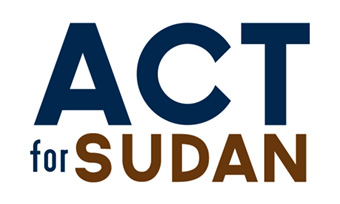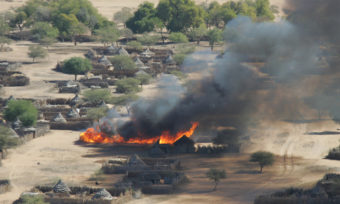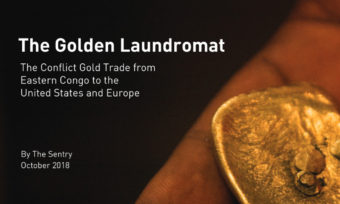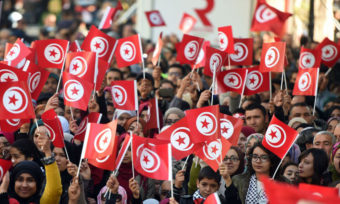Act for Sudan is an alliance of American citizen activists and Sudanese U.S. residents who advocate for an end to genocide and mass atrocities in Sudan. We often support their actions and join them in their advocacy, signing letters and sharing their news and reports.
Act for Sudan’s co-founder, Eric Cohen, shared Lessons and Challenges from the Genocide in Sudan during The Pittsburgh Darfur Emergency Coalition (April 15, 2018). In this letter, he explains how Sudan activism has helped many Sudanese, even though he considers it is still not enough:
Together, Sudan activism in the US has helped a great many Sudanese, particularly by America providing most of the aid that has helped sustain the millions of people displaced from their homes in Sudan, thereby preventing even more deaths. And yet, sadly, all our collective work over the years has not been enough. Not enough to stop the government sponsored killings. Not enough to force a breakthrough so that the millions of displaced can get humanitarian assistance. Not enough to end the marginalization and targeting of Sudanese peoples. Not enough to transform the political model in Sudan that victimizes millions while advancing extremist ideologies. Not enough to end the regime that is the root cause of Sudan’s problems. Not enough. Not yet.
We understand what Eric Cohen is saying because everyone committed into raising awareness about the situation in Sudan feel there is still so much to do for Sudanese to live in peace. Cohen describes what is really happening in the country:
In Sudan, we are learning hard, cruel lessons about power and evil in the world. 29 years of President Bashir heading an NCP government in Sudan tells a repeating story of mass atrocities, ethnic cleansing, denial of food and medicine, rape as a weapon of war, and genocide by the army and militias, while its leaders do their creative best to distract the West from focusing on stopping them. Millions of Darfuris who were driven out of their villages and off their land are still unable to return because it is unsafe. Meanwhile, the government is settling ethnic Arab people on Darfuri land, from other places in Sudan or outside of Sudan, raising the specter of succeeding in the final stage of genocide by permanently eliminating the African people of the Zaghawa, Massaleit, and Fur tribes from Darfur.
Cohen continues, saying out loud what the International Community doesn’t want to hear because it is easier to turn a blind eye than take action:
The international community acquiesces in the perverse arrangement that the government of Sudan first perpetrates the abuses, creates the crises, and then gets to decide if, when, and how it will approve each proposed step that might respond to the crises. The Government is increasingly effective in blocking news from Sudan, limiting access to selective regions, and impeding UNAMID’s effectiveness […] Over the years, Bashir has learned that there are little or no consequences for his actions, that there are no consequences for breaking his commitments, that the U.S. along with the West is a paper tiger. Impunity reigns. Nothing, yet, has happened to force Bashir to change his strategy for staying in power by exploiting ethnic and religious differences to victimize the marginalized people of Sudan.
Cohen also explains how the conflict between activists and aid groups (regarding the no-fly zones or the lift of sanctions) benefited Bashir. This is a powerfull letter Eric Cohen wrote and you can read it in full here to better understand what is at stake when it comes to Sudan activism and the lack of decisions (or on the contrary, taking useless ones…) from the United States and the whole international community, and their consequences.








